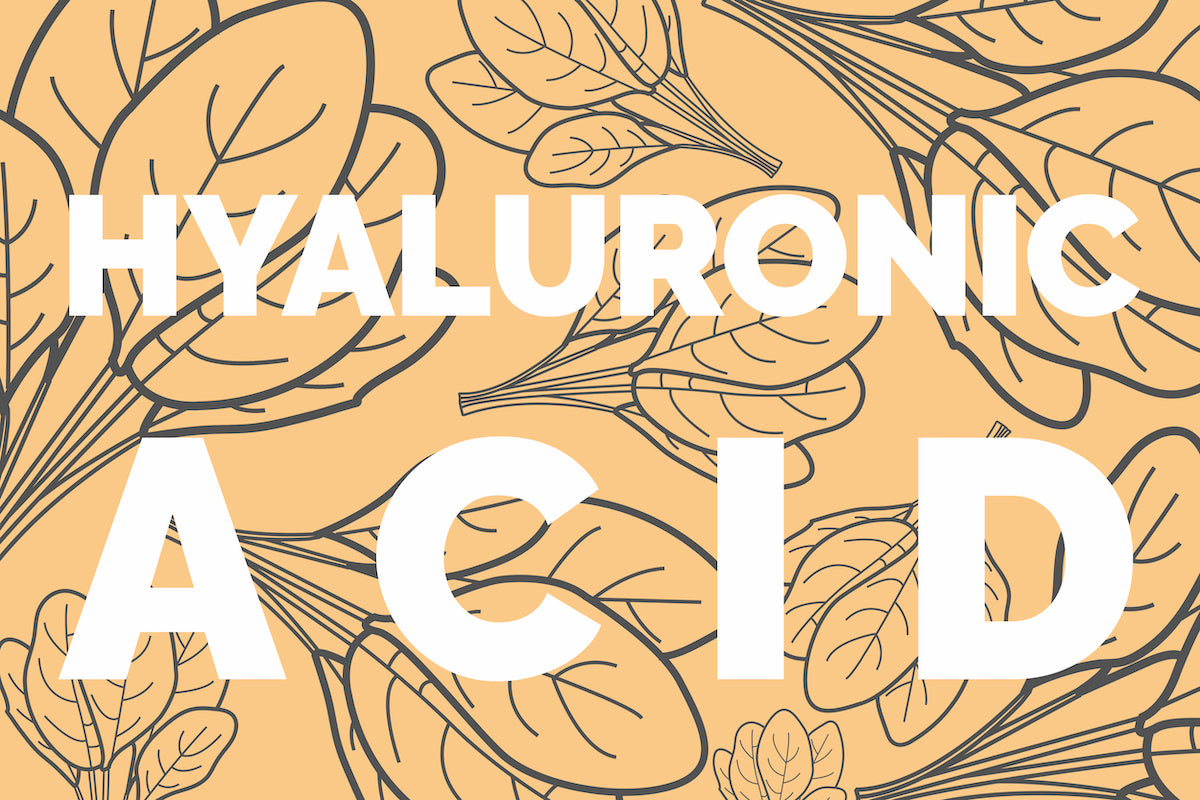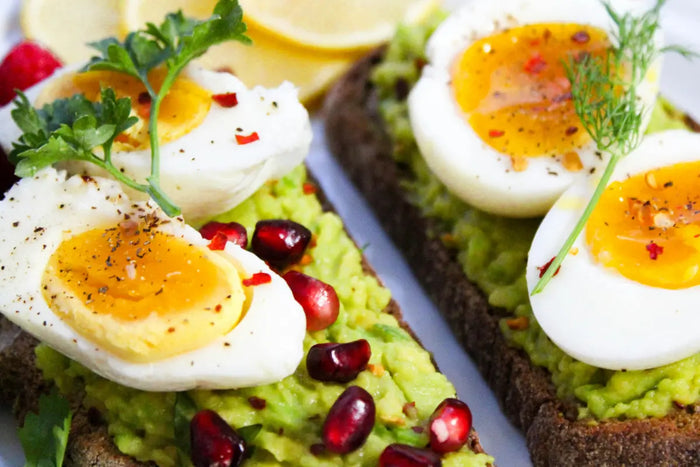Hyaluronic acid. You’ve probably heard about it, and you’re probably wondering why this ingredient is so popular? Loved by all that try it and named as something of a holy grail skincare product by skincare gurus everywhere, hyaluronic acid has a lot of hype around it, and to be quite honest, it’s not hard to see why.
We love it too.
We love it so much, in fact, that we’ve included it as a key, research-backed ingredient in our debut skincare product The Glow Booster: the latest collagen supplement for skin.
But before you implement hyaluronic acid and The Glow Booster into your routine, if you’re not familiar with the ingredient, it might be a good idea to answer some of your burning questions. What is hyaluronic acid, what are the key hyaluronic acid benefits, and the big one: how to use hyaluronic acid.
Let’s go.
What is Hyaluronic Acid?
You know what, that’s a very, very good question.
Hyaluronic acid is a substance in the body, that is naturally present, primarily in your eyes and joints within your connective tissue. If we want to get into the nitty gritty of it all, it’s a clear, gooey substance. Mmmm...
Hyaluronic acid works within the body to creating a natural cushioning effect, as well as a lubricant to ensure that joint and tissue is maintained, preventing pain and friction throughout the body. As well as this, though, investigation into the use of hyaluronic acid has discovered that the naturally-occurring ingredient is hugely beneficial when it comes to skincare.
Do tell...
An investigation conducted in the Czech Republic into the use of hyaluronic acid as a natural moisturiser for skincare use found that topical use of hyaluronic acid is beneficial when used in both moisturising and anti-aging skincare products. Nice.
Why do people use Hyaluronic acid?
Hyaluronic acid is a popular product due to the skin’s natural reduction in natural concentration levels of this ingredient as we age.
It’s effectiveness as a staple in the natural skincare sphere has earned itself a spot in skincare routines everywhere and is very often included as a key ingredient in moisturisers, serums and in skincare supplements such as The Glow Booster, too.
Hyaluronic Acid benefits
Due to the extensive range of benefits that hyaluronic acid brings, don’t be surprised that many people across the internet will claim that hyaluronic acid cleansed them of their regrets from summer 2009, helped them win the lottery and bag the date of their dreams, when it comes to our favourite hyaluronic acid benefits, ours are much more health-based and simple.
Here are Innermost’s favourite hyaluronic acid benefits:
- Promotes healthy, glowing skin
- Relieves muscle and joint pain
- Improves the skin’s suppleness
- Can speed up the healing of open wounds
- Maintains a healthy bone strength
- Can soothe symptoms of acid reflux
How to use Hyaluronic Acid
Hyaluronic acid can be used in many forms, whether that be through topical application after your facial cleanser (and before your moisturiser), or through a skincare supplement that contains hyaluronic acid such as The Glow Booster, the choice is yours.
When it comes to incorporating hyaluronic acid into your nutrition and diet, The Glow Booster comes in a nifty, flavourless powder form that enables the product to be added to your favourite protein shake, morning coffee or even breakfast porridge.
When it comes to using our hyaluronic acid-infused skincare supplement The Glow Booster, it really is that simple.
Scoop into your drink of choice and voila!
Summary
With the extensive benefits of hyaluronic acid in mind, if you’re looking for a hyaluronic acid supplement for your skin that packs a punch, with a bunch of other research-backed ingredients included such as collagen and Vitamin C, The Glow Booster is the one for you.

















